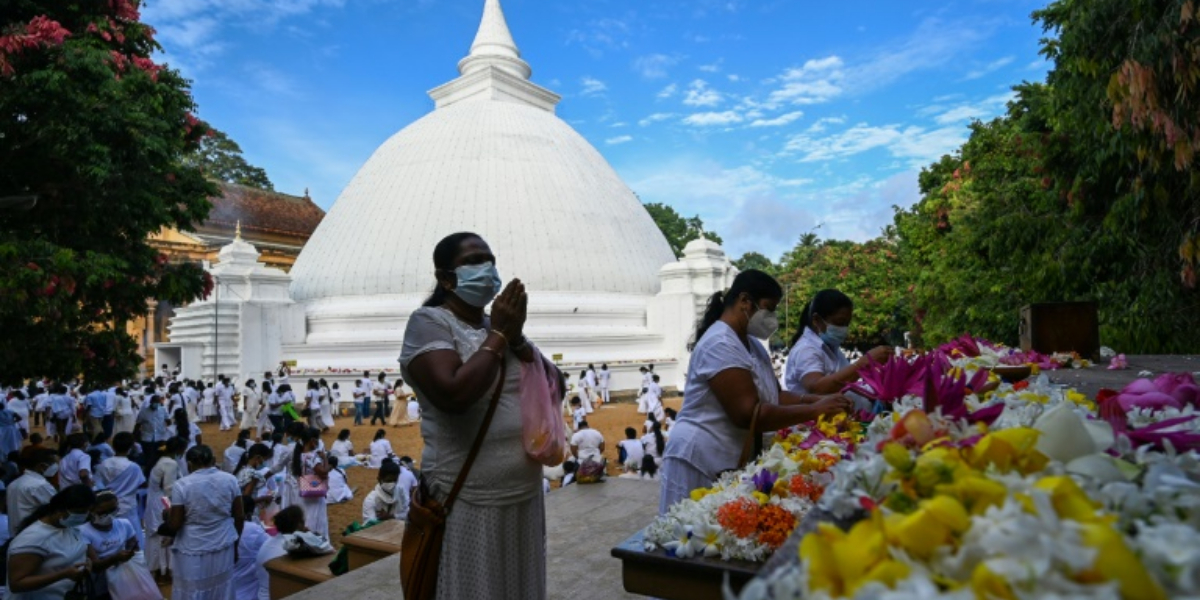For an important Buddhist festival, Sri Lankan authorities lifted a statewide curfew on Sunday, but celebrations were muted as the island nation’s new premier tried to find his feet and deal with a growing economic crisis.
After attacks on nonviolent demonstrations by government loyalists, a statewide stay-at-home order has been in effect for much of the week, resulting in nine deaths and over 225 injuries.
Protesters across the Buddhist-majority country have been calling for President Gotabaya Rajapaksa’s resignation over the country’s worst-ever economic crisis for weeks.
Food, gasoline, and medical shortages, as well as record inflation and protracted outages, have wreaked havoc on the country’s 22 million residents.
Vesak, Sri Lanka’s most important religious festival, commemorates Buddha’s birth, enlightenment, and death on Sunday.
The administration has declared a two-day vacation and announced that the curfew will be lifted for the day, but has not stated when or if it will be reinstated.
However, due to the ongoing situation, the administration decided to cancel the festival, which was to be held at a temple in the island’s south.
“Given the economic situation of the government and other constraints, we are not having this year’s state festival at the Kuragala temple as planned,” a Buddhist Affairs ministry official told AFP.
The official said Buddhists were free to hold their own celebrations, including the mass meditation and Buddhist sermons traditionally held during the festival.
Soup kitchens, lanterns, and “pandal” bamboo stages with enormous murals depicting stories from Buddha’s life were typically set up by worshippers.
However, Sri Lanka has struggled to adequately stage Vesak for years, with the Easter Sunday attacks in 2019 depressing celebrations and the coronavirus pandemic affecting the last two years.
Due to political instability brought on by the economic crisis, the festival has been shortened this year.
Ranil Wickremesinghe, the newly appointed Prime Minister, is attempting to create a unity government ahead of the first parliamentary session since taking office on Tuesday.
Sajith Premadasa, the leader of the opposition, has already formally rejected an approach to join the new government.
“The demand from the streets is that President Rajapaksa should step down,” Premadasa said. “We will not join any government with him in it.”
But he added that his party would not block legitimate “solutions to the economic problems” in parliament.
Rajapaksa on Saturday appointed four new ministers, all from his own Sri Lanka Podujana Peramuna (SLPP) party, but the all-important finance ministry remains vacant.
Official sources said the new prime minister could take the finance portfolio to spearhead ongoing negotiations with the International Monetary Fund for an urgent bailout.
– ‘They are all the same’ –
Wickremesinghe, a veteran politician who was sworn in as prime minister for a sixth time on Thursday, has already met with diplomats from Britain, the United States, Japan, China and India to seek financial aid.
He said last week that shortages will get worse in coming weeks, with reserves of useable foreign exchange needed to import essential goods falling below $50 million.
His appointment has so far failed to quell public anger at the government for bringing Sri Lanka to the brink of economic collapse.
“All these people are hand-in-glove,” Fareena, a resident of the capital Colombo, said of the new premier.
“When one goes, they bring another one of their guys in,” she told AFP. “But to us, they are all the same.”
Long lines formed outside the few remaining gas outlets on Sunday as cars waited for rationed gasoline.
With the state of emergency still in effect, heavily armed troops are patrolling the streets.

















